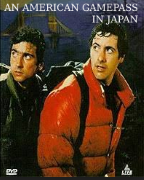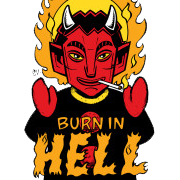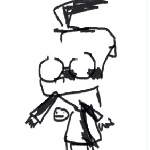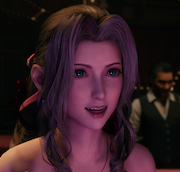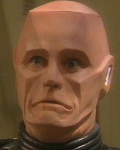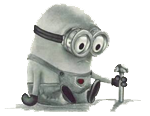|
Yeah it’s Robot Style’s job so I see why it would bug him but “I noticed the artifice” is the weirdest complaint
|
|
|
|

|
| # ? May 26, 2024 06:31 |
|
SuperMechagodzilla posted:The basic concept of a prequel is that it is an achronological sequel. Otherwise, we would refer to the PT as the OT, and the OT as the ST. The original first film would be, retroactively, a sequel to the films that hadn’t yet existed - and the very concept of a prequel wouldn’t exist. The concept of prequel arises from the movies' chronological/historical release in the real world. I'm pointing to a distinction between that and how these particular movies themselves present themselves as part of their discourse. They came out 4-5-6 then 1-2-3, but they number themselves 1-2-3-4-5-6. You're misunderstanding my (Narratology's) logic, or more likely, I'm just not explaining it well. Pulp Fiction's narrative (discourse in my terms) doesn't begin with the watch monologue; it begins with the first restaurant scene because the latter is the first scene presented by the narrative/discourse. This is that distinction between plot/story and narrative/discourse that I think we agree on. This also isn't the best comparison because Pulp Fiction is a singular movie released at a singular point in history while Star Wars is a series of movies released over the course of a few decades. Pulp Fiction doesn't involve the distinction between historical time and narrative/discursive time that I'm pointing to, which is different from the distinction between narrative/discursive time and plot/story time. Or in short, I'm saying (really just relaying the Narratological frame) that there are three levels of time involved, not two. In this frame, your interpretation (which again, I'm pretty much all aboard on) isn't talking about the narrative form of the movies; it's talking about their historical form, which I'll concede is their Actual form in the sense that it is the form they take in the Actual World, the world of historical time. But I think that if you want to take them narratively, at the level of narrative/discursive time, you need to take them in the ahistorical order in which they present themselves. The "actual form" of escalation that you describe is then a "narrative form" of waves cresting and crashing, which doesn't necessarily contradict your cyclical interpretation.
|
|
|
|
PeterWeller posted:The concept of prequel arises from the movies' chronological/historical release in the real world. I'm pointing to a distinction between that and how these particular movies themselves present themselves as part of their discourse. They came out 4-5-6 then 1-2-3, but they number themselves 1-2-3-4-5-6. That the narrative of the six Star Wars films matches their release order is a correlation, but not my point. I’ve already noted that Episode 8 narratively precedes Episode 7, and (earlier in the thread) that the two Ewok films are best viewed as bookends to the ‘OT’. (Outside the realm of Official Star Wars Movies, my recommended viewing order for the Terminator series is 1-4-2-5.) In certain ways, you’re not going far enough, since you could theoretically pinpoint the exact order in which individual shots in a given film were filmed. What was, historically speaking, the very first image shot for Pulp Fiction? It’s counterintuitive, but it’s possible to do - and yet obviously not what I’m talking about. But at this point it’s pretty clear that, outside your preference for more obscure terminology, the only disagreement here is that you view the narrative/‘discourse’ as largely determined by what number is in the title, while I consider that fairly arbitrary when compared to, like, thematic progression.
|
|
|
|
DeimosRising posted:Yeah it’s Robot Style’s job so I see why it would bug him but “I noticed the artifice” is the weirdest complaint Phantom Menace is my favorite Star Wars film but the far shot where the two cgi jedi fall out of the vent at an unnatural and strange speed just triggers some visceral "wrong" center of my brain in a way that a flying sack of crap used car dealer with a gambling problem and slaves doesn't.
|
|
|
|
I always felt that shot was a little Harryhausenish
|
|
|
|
PeterWeller posted:In this frame, your interpretation (which again, I'm pretty much all aboard on) isn't talking about the narrative form of the movies; it's talking about their historical form, which I'll concede is their Actual form in the sense that it is the form they take in the Actual World, the world of historical time. But I think that if you want to take them narratively, at the level of narrative/discursive time, you need to take them in the ahistorical order in which they present themselves. The "actual form" of escalation that you describe is then a "narrative form" of waves cresting and crashing, which doesn't necessarily contradict your cyclical interpretation. Although the numerical order is presented to us, it's still only part of the overall presentation, so we're nevertheless responsible for interpreting that in the totality. It's certainly valid to take the path of "the ahistorical [numerical] order in which they present themselves", but in order to say that it's the most truthful narrative frame, one would have to take the next step and make the reading that explains why it's so essential (As opposed to a straightforward delineation of plot). KVeezy3 fucked around with this message at 16:10 on Apr 24, 2021 |
|
|
|
DeimosRising posted:Yeah it’s Robot Style’s job so I see why it would bug him but “I noticed the artifice” is the weirdest complaint For the most part, stuff like that actually makes me appreciate the movie more, since it exposes the hand of the artist. CG has a reputation for being soulless compared to stuff like puppets and physical models, so exposing errors and limitations can sometimes be a reminder that there's still human craft involved. If a marionette has visible strings, that doesn't mean the storytelling is bad - it just means that the skill of the puppeteer is also a part of the performance.
|
|
|
|
I feel like a lot of the emphasis on practical effects is just a movie visuals version of "Saturday Night Live was only good at the exact time when I was young and watching it." There's this arbitrary sense that movie visuals peaked in like, the 80s, and they're never clamoring for the physicality of King Kong claymation or whatever.
|
|
|
|
It’s just we went from practical effects to just hard cgi after like the 2000’s. I’d take Jurassic Park level or Starship Troopers level practical effects. Both films mixed the mediums well.
|
|
|
|
Martman posted:I feel like a lot of the emphasis on practical effects is just a movie visuals version of "Saturday Night Live was only good at the exact time when I was young and watching it." There's this arbitrary sense that movie visuals peaked in like, the 80s, and they're never clamoring for the physicality of King Kong claymation or whatever. I think a lot of the success and subsequent nostalgia for these old special effects was because they were forced to be novel and interesting with them to make up for the limitations of the physical medium. This led to clever closeups, sharp editing and especially story and directing conceits to hide the fact they were literally rubber puppets. This ended up leaving alot to the imagination. Nowadays you can pretty much throw a virtual camera anywhere and do anything - so there's less requirement to be subtle or careful. We watched Jurassic Park the other day and then whatever the new Jurassic World is called and boy, what a difference. The former is deliberately paced in a way where the slow lead up to the reveal of each dinosaur ensures that they fill you with a sense of wonder... Or fear. There's a lot left to your imagination. In the latter, it became a running joke in that every scene couldn't help itself but jam about 6 dinosaurs in every frame that are all doing something that's seems to be impressive. It just all seems so fake. I often wonder if 1993 Spielberg had access to today's CG technology whether it would be as memorable. Though with that said, there are plenty of forgotten examples from the 80s that don't hold up the same way. There's a reason why you see the same names again and again when looking at the practical effects practitioners and directors from the movies everyone remembers from that era.
|
|
|
|
Isometric Bacon posted:In the latter, it became a running joke in that every scene couldn't help itself but jam about 6 dinosaurs in every frame that are all doing something that's seems to be impressive. It just all seems so fake.
|
|
|
|
Robot Style posted:For the most part, stuff like that actually makes me appreciate the movie more, since it exposes the hand of the artist. CG has a reputation for being soulless compared to stuff like puppets and physical models, so exposing errors and limitations can sometimes be a reminder that there's still human craft involved. If a marionette has visible strings, that doesn't mean the storytelling is bad - it just means that the skill of the puppeteer is also a part of the performance. I like this post a lot
|
|
|
|
This is the part of the thread where we circle back to realizing that the prequels didn’t use or overuse a lot of cgi and it’s the aesthetic that is fooling you
|
|
|
|
SuperMechagodzilla posted:But at this point it’s pretty clear that, outside your preference for more obscure terminology, the only disagreement here is that you view the narrative/‘discourse’ as largely determined by what number is in the title, while I consider that fairly arbitrary when compared to, like, thematic progression. I'd say it's a preference for clear terminology. The explicit ordering of the movies isn't something I'd call arbitrary. You can see a clear thematic progression of decline, collapse, and redemption across the films in numerical order. KVeezy3 posted:Although the numerical order is presented to us, it's still only part of the overall presentation, so we're nevertheless responsible for interpreting that in the totality. It's certainly valid to take the path of "the ahistorical [numerical] order in which they present themselves", but in order to say that it's the most truthful narrative frame, one would have to take the next step and make the reading that explains why it's so essential (As opposed to a straightforward delineation of plot). This is a fair point, though I wouldn't say "most truthful." I'd suggest instead that their numerical ordering is something any formal reading needs to consider. A reading that disregards that is setting aside the movies' own explicit narrative frame, that they are sequential entries in a serial. Watching them in that order has a clear thematic progression.
|
|
|
|
Isometric Bacon posted:I think a lot of the success and subsequent nostalgia for these old special effects was because they were forced to be novel and interesting with them to make up for the limitations of the physical medium. This led to clever closeups, sharp editing and especially story and directing conceits to hide the fact they were literally rubber puppets. This ended up leaving alot to the imagination. You're getting to it at the end but 1993 Spielberg was an infinitely better filmmaker than either of the directors for the two Jurassic World movies. The big early 'wonder' shot of Jurassic Park was the all cgi Brachiosaurus. Spielberg also had all of the practice of dealing with lovely puppets that you need to hide having done Jaws. There was never a requirement to be subtle or careful. Good filmmakers have just always been better at using their available tools than mediocre and lovely ones.
|
|
|
|
Robot Style posted:For the most part, stuff like that actually makes me appreciate the movie more, since it exposes the hand of the artist. CG has a reputation for being soulless compared to stuff like puppets and physical models, so exposing errors and limitations can sometimes be a reminder that there's still human craft involved. If a marionette has visible strings, that doesn't mean the storytelling is bad - it just means that the skill of the puppeteer is also a part of the performance. Yeah this is absolutely where I was coming from. Of course movies are fake, that’s why they’re interesting. Shiroc posted:You're getting to it at the end but 1993 Spielberg was an infinitely better filmmaker than either of the directors for the two Jurassic World movies. The big early 'wonder' shot of Jurassic Park was the all cgi Brachiosaurus. Spielberg also had all of the practice of dealing with lovely puppets that you need to hide having done Jaws. There was never a requirement to be subtle or careful. Good filmmakers have just always been better at using their available tools than mediocre and lovely ones. I think there’s a lot of studio meddling in Fallen Kingdom. Bayona had directed some great horror and fantasy work before that film and that’s not on the screen at all
|
|
|
|
PeterWeller posted:I'd say it's a preference for clear terminology. The explicit ordering of the movies isn't something I'd call arbitrary. You can see a clear thematic progression of decline, collapse, and redemption across the films in numerical order. An analysis that places the narrative order from OT to PT doesn't necessarily disregard the numerical ordering; it could simply note that it delineates plot progression. Take, for example, the video-game franchise Resident Evil's historical release order that begins 1, 2, 3, 0, 4: it's clear that the presentation of that numerical order indicates plot mapping, since the actual narrative is presented through the evolving art style/graphics & game mechanics that coincides with the historical release order. That's not to say that there is no coherent analysis of the SW films in numerical order, but that the value of doing so should reflect in the reading. The same goes for a hypothetical reading that uses an ordering that doesn't coincide with either the numerical or historical release order of the films: that would simply mean that it places that importance below other considerations, but ultimately the validity of doing so depends on the strength of the reading. If analysis was restricted to the official numerical order then there will be other parts of the presentation that are disregarded. SMG has already noted the progression of force powers, so I'll also throw in the PT's evolving production design which presents the republic's rapid fall into fascism with the imagery of the OT as referent. With the numerical ordering, the cinematic power of the scene in Ep. 2 of the Jedi-led clone army marching along with the theme song of the empire blaring is effectively lost. KVeezy3 fucked around with this message at 16:49 on Apr 25, 2021 |
|
|
|
PeterWeller posted:This is a fair point, though I wouldn't say "most truthful." I'd suggest instead that their numerical ordering is something any formal reading needs to consider. A reading that disregards that is setting aside the movies' own explicit narrative frame, that they are sequential entries in a serial. Watching them in that order has a clear thematic progression. In addition to what KVeezy's written, the issue is that this is less a formal look at how the narrative is structured and more a deference to a narrator - i.e. the entity behind the blue and yellow text. In your own wording, the narrator - who effectively is Star Wars - "calls itself" a serial and are therefore asks/demands to be viewed in numerical order. That's why this is not necessarily true. Looking up where you're getting these terms from, I think one key misunderstanding is that "story and discourse" are not equivalent to "plot and narrative", because they are in fact both aspects of narrative. Plot remains distinct. Even in everyday speech, we use phrases like "The Story Of Darth Vader", while "The Plot of Darth Vader" doesn't work because a film's plot isn't 'about' anything. Plot, in the abstract, is as about close as you can get to just "pure content" - which why achronological storytelling can be so effective.
|
|
|
|
The prequels are absolutely sequels to the OT, complete with having the typical sequel thing of recontextualising the originals with more complex themes and adding context and dramatic irony. Rogue One does the same thing, or at least tries to; its themes and plot are built around the context of the OT and the prequels.
|
|
|
|
KVeezy3 posted:An analysis that places the narrative order from OT to PT doesn't necessarily disregard the numerical ordering; it could simply note that it delineates plot progression. Take, for example, the video-game franchise Resident Evil's historical release order that begins 1, 2, 3, 0, 4: it's clear that the presentation of that numerical order indicates plot mapping, since the actual narrative is presented through the evolving art style/graphics & game mechanics that coincides with the historical release order. My point isn't that the only valid analysis of the movies is one that follows their numeric ordering. It's that an analysis that claims to be a formal analysis of the movies must account for that the fact the narrative explicitly frames itself with that ordering. Obviously, plot mapping is part of that, but I think it's wrong to write it off as just that when claiming to analyze the movies' narrative. The Star Wars movies are not just following a convention for presenting sequels. Their numerical ordering, as episodes in a serial, is an explicit textual frame that they establish in the opening moments of each movie. So often when people come in here to complain about 1-3's dialog, SMG will defend it as an implicit reference to the genre of early space opera film serials, yet here he disregards an explicit reference to same genre and its conventions. I've already pointed out that SMG's progression of Force powers can be read as the cresting and falling of a wave. I'd also note that it's not the cut-and-dried escalation that SMG says it is. The level of power crests and falls in reading the movies 4-6,1-3 as well. It goes from mind tricks to telekinesis to lightning and then goes from supernatural physical feats to telekinesis and lightning. And if we're going to focus on the progression of Force powers, we should also consider whose Force powers we are talking about. That the design of 1-3 evolves into the design of 4-6 works with either ordering. You don't need 4-6 as an initial referent to see that evolution. And the power of that scene is not effectively lost without 4-6 as a referent either. The Imperial March has its ominous overtones either way. The whole scene with the dialog that frames it, its red skies, and its legions of troops boarding warships has loads of cinematic power regardless of whether or not you know that music is the bad guys' theme. SuperMechagodzilla posted:In addition to what KVeezy's written, the issue is that this is less a formal look at how the narrative is structured and more a deference to a narrator - i.e. the entity behind the blue and yellow text. In your own wording, the narrator - who effectively is Star Wars - "calls itself" a serial and are therefore asks/demands to be viewed in numerical order. That's why this is not necessarily true. A formal look at how the narrative is structured is a formal look at how it is narrated to us. The narrator is an imaginative construct, the thing that is telling us this story as established by the discourse, and the way that imagined narrator tells us the story is the form it takes. I asked you previously if you were using plot and narrative as I would use story and discourse because the way you seemed to be using them at the time--plot as the fictional sequence of events, narrative as the way they are presented to the audience--maps onto the Narratological terms of story and discourse. Any misunderstanding comes from your unwillingness to come to terms. I've been reaching towards a clarity of terms. You ignored that part. In Narratological terms, plot is an aspect of the story, distinguished because it's not the only aspect. In simplest terms, character and setting must also be accounted for. In everyday terms, people talk about "the plot of Star Wars" all the dang time. Some, like you, use this to mean the sequence of events. Some others use it to mean the "plotting" of Star Wars as in how it lays out its story. I'm using Narratological terms (and trying to map your terms onto them) specifically to avoid the confusion caused by different uses in everyday language. And I wouldn't weigh so much on the effectiveness of achronological storytelling because doing so frames it as something special. The truth is many, if not most, stories use some amount of achronological storytelling. Flashbacks, visions of the future, and expository reveals of history are common narrative devices that have been around since Homer. Your friend telling you an extemporaneous story about what happened last weekend is likely to use some achronological storytelling as they recall details that are important to your understanding of the story. E: The TL;DR of all this is simple: if you want to validate your own reading above others' by invoking the narrative--like say when you are telling someone that Qui Gon is not a protagonist--you need to account for how that the narrative explicitly frames itself. If not, you're just using "the narrative" as a god term to shut down discussion. PeterWeller fucked around with this message at 18:30 on Apr 25, 2021 |
|
|
|
PeterWeller posted:That the design of 1-3 evolves into the design of 4-6 works with either ordering. You don't need 4-6 as an initial referent to see that evolution. And the power of that scene is not effectively lost without 4-6 as a referent either. The Imperial March has its ominous overtones either way. The whole scene with the dialog that frames it, its red skies, and its legions of troops boarding warships has loads of cinematic power regardless of whether or not you know that music is the bad guys' theme. The question isn't whether it works or not as a narrative, it's whether it works better. Yes, the scene does still create a foreboding atmosphere, but the threat remains an abstraction - what is effectively lost is the specific link to fascism spearheaded by the Jedis and their political machinations, which takes place narratively after the OT, the film trilogy that previously established through exposition that the Jedis have been the guardians of Peace and Justice for thousands of years. So if the order were PT then OT, how would the narrative improve? I'm not sure why you think this approach shuts down discussion, as I'm perfectly open to reading the hypothetical formally correct analysis of the films that dictates a 1 though 6 watch order. You've written much about how necessary it is for a formal analysis to have the numerical order dictate the narrative framing, but you haven't written much about why it's so important. Other than this point that the episodic frame is a reference to old serials - is that it? Are you not actually invoking The Narrative as a god term when saying all formal analyses must accept this framing? KVeezy3 fucked around with this message at 20:06 on Apr 25, 2021 |
|
|
|
Ghost Leviathan posted:The prequels are absolutely sequels to the OT, complete with having the typical sequel thing of recontextualising the originals with more complex themes and adding context and dramatic irony. Rogue One does the same thing, or at least tries to; its themes and plot are built around the context of the OT and the prequels. Oh yeah, for sure. But any new work linked to an older one recontextualizes it because it creates new context. This doesn't change when one interprets the movies in the order they present themselves. KVeezy3 posted:The question isn't whether it works or not as a narrative, it's whether it works better. Yes, the scene does still create a foreboding presence, but the threat remains an abstraction - what is effectively lost is the direct link to fascism spearheaded by the Jedis and their political machinations, which takes place narratively after the OT, which previously established through exposition that the Jedis have been the guardians of peace and justice for thousands of years. So if the order were PT then OT, how would the narrative improve? The question of whether it works "better" is such a subjective one. Eps 1 and 2 establish that the Jedi guard peace and order on their own without needing Obiwan's line. Leading an army to war is what they're trying to avoid and inadvertently positioning themselves to do from the beginning. Like I think it's a wash. I'm not arguing for a "superior" interpretation. I apologize for giving that impression. As I've said, I'm generally inclined towards SMG's interpretation, and I don't even think taking the movies as they frame themselves contradicts or hurts that interpretation. His ultimate point, that it all points towards a cycle, is still evident in the cyclical structure of the films regardless of which of these orders you watch or interpret them in. My point is about being clear about what we mean when we say things like the plot or the narrative. I'm coming at this as a reaction to the discussion about plot, narrative, protagonists, and focal characters, which I felt was mainly a result of confusing terms. I'm harping on this particular point about ordering, not because I think it's the key to a better or more true interpretation, but because it illustrates what the terms I am presenting mean. Serial episodes are how the discourse explicitly frames itself. This is important, like how The Blaire Witch Project presents itself as found footage or Starship Troopers presents itself as a propaganda film. This is something that needs to be addressed when discussing the film's narrative in the terms I've laid out. I've explained the logic of this. I'm not trying to present a god term. I'm trying to present a definition. Any interpretation of the 6 (or 9) movies is being made about all the movies after watching all the movies and is going to involve taking them in context with each other. It just has to because that's like a prerequisite for interpreting them as a series of movies. My point is that if that interpretation is going to say, "the narrative [the narrative discourse] says X", based on the terms I've tried to clarify, then it needs to account for how the narrative discourse explicitly says the movies go 1-6.
|
|
|
|
PeterWeller posted:And I wouldn't weigh so much on the effectiveness of achronological storytelling because doing so frames it as something special. The truth is many, if not most, stories use some amount of achronological storytelling. Flashbacks, visions of the future, and expository reveals of history are common narrative devices that have been around since Homer. Your friend telling you an extemporaneous story about what happened last weekend is likely to use some achronological storytelling as they recall details that are important to your understanding of the story. That stories are almost always achronological in some respect is precisely why they’re distinct from plots. I had taken you at your word that you were referring to some tradition where the word “story” is synonymous with plot, but it turns out that’s not the case. PeterWeller posted:The question of whether it works "better" is such a subjective one. Not when we are referring to a truth beyond subjectivity. The numerical order of 123456 ‘works’ as a story in that it presents us with a happy ending where the evil emperor is defeated by Vader. But, as we’ve seen, many people miss the point and view this ending as an endorsement of liberal Republicanism by Vader: Vader is taught the error of his ways and reverts back to the humanist Anakin. The cyclical ending of 456-123 problematizes the ending of 6, and politicizes it. That is a true difference, and a true improvement.
|
|
|
|
PeterWeller posted:The question of whether it works "better" is such a subjective one. Eps 1 and 2 establish that the Jedi guard peace and order on their own without needing Obiwan's line. Leading an army to war is what they're trying to avoid and inadvertently positioning themselves to do from the beginning. Like I think it's a wash. Again, you've left out the specific depiction of the descent to fascism. You've said that a reading can interpret the episode numbers as the delineation of plot, but that this isn't enough to be a properly formal reading. There's a certain amount of intentionality here ascribed to the episode numbers and have subsequently deemed essential to the narrative form of Star Wars that I think is unsubstantiated. Let's take for instance, SMG's infamous reading that Jakku = Tatooine: do you think it's not a properly formal reading because it goes against all 'official' documentation?
|
|
|
|
SuperMechagodzilla posted:That stories are almost always achronological in some respect is precisely why they’re distinct from plots. Yeah, and I explained that distinction in a number of different ways. Plot isn't story. Plot is an aspect of story. The only time I used plot as a synonym for story was when I was asking you if your use of plot mapped onto my use of story in the plot/narrative--fabula/syuzhet--story/discourse framings. I even noted that some people take the term plot to mean what I think you mean when you say story, pointing to the fact that in common usage, words like plot, story, and narrative are often used in different ways, causing confusion. I have to wonder if you actually took me at my word when you ignored my attempt to reconcile the terms we're using. quote:Not when we are referring to a truth beyond subjectivity. There isn't truth beyond subjectivity. You prefer the problematized ending of 6. That's cool, and a perfectly good way to read the movies, but it isn't some truth; it's your preferred political reading. KVeezy3 posted:Again, you've left out the specific depiction of the descent to fascism. The specific depiction of the descent into fascism happens in 1-3 in whichever order you watch the movies. You don't need eps 4-6 to see that eps 1-3 show the Republic becoming a fascist state. I'm dismissing intentionality with regard to the narrative here. I'm saying that the discourse frames itself in a particular generic way and we should respect that framing if we're making an argument about what the discourse says. Edit: Any sense of intentionality coming from what I'm saying comes from a trick of language. In the literal sense, the text, the movies, doesn't do anything; it's just sounds and images. But if we're going to talk about the text and what it does, we're going to talk about it like it's a thing with agency and intention. In Narratology, the narrator is the thing to which we ascribe that agency and intent. This is one of the reasons why we distinguish between the physical text and the imaginative discourse of that text (which is, again, different from the story presented by that imaginative discourse). So in that sense, what the discourse of Star Wars, the imagined narrative relayed to you by an imagined narrator (which doesn't have to be a specific person or thing, but here may be R2D2 or the Whills), does is tell you that it's a serial that runs 1-6. And I don't think that reading is substantiated by the texts. PeterWeller fucked around with this message at 00:13 on Apr 26, 2021 |
|
|
|
PeterWeller posted:There isn't truth beyond subjectivity. You prefer the problematized ending of 6. That's cool, and a perfectly good way to read the movies, but it isn't some truth; it's your preferred political reading. We get it, you're a postmodernist. PeterWeller posted:The specific depiction of the descent into fascism happens in 1-3 in whichever order you watch the movies. You don't need eps 4-6 to see that eps 1-3 show the Republic becoming a fascist state. You're talking about that scene in the context of the overall plot, as opposed to the particular narrative ordering, which doesn't indicate some abstract omen that things are going to get bad, but an explicit message that it's already too late: fascism is already here, just not recognized. So Palpatine's official ascension to the throne in episode 3 is nothing but the farce in Marx's famous dictum of epochal historical events: "First as tragedy, then as farce." Mace Windu : In the name of the Galactic Senate of the Republic, you're under arrest, Chancellor. Supreme Chancellor : Are you threatening me, Master Jedi? Mace Windu : The senate will decide your fate. Supreme Chancellor : I AM the senate! Mace Windu : Not yet. Supreme Chancellor : It's treason, then... PeterWeller posted:I'm dismissing intentionality with regard to the narrative here. I'm saying that the discourse frames itself in a particular generic way and we should respect that framing if we're making an argument about what the discourse says. Edit: Any sense of intentionality coming from what I'm saying comes from a trick of language. In the literal sense, the text, the movies, doesn't do anything; it's just sounds and images. But if we're going to talk about the text and what it does, we're going to talk about it like it's a thing with agency and intention. In Narratology, the narrator is the thing to which we ascribe that agency and intent. This is one of the reasons why we distinguish between the physical text and the imaginative discourse of that text (which is, again, different from the story presented by that imaginative discourse). So in that sense, what the discourse of Star Wars, the imagined narrative relayed to you by an imagined narrator (which doesn't have to be a specific person or thing, but here may be R2D2 or the Whills), does is tell you that it's a serial that runs 1-6. No, I don't think that our disagreement is a trick of language, as it's that very narrator 'to which we ascribe agency and intent' is what we disagree on. For example: although you've described yourself as a non-believer in objective truth, you've nonetheless asserted full-heartedly that the 1-6 order is the true form of Star Wars, and anything that deviates from this is formally false. But I believe that the narrative truth of the numerical order is the straightforward formal dictation of plot, and I've yet to hear a compelling reason to think otherwise. KVeezy3 fucked around with this message at 14:01 on Apr 26, 2021 |
|
|
|
trying to watch the prequels while divorcing yourself of any knowledge of the OT is a big part of the reason why so many nerds nitpick the films.
|
|
|
|
Horizon Burning posted:trying to watch the prequels while divorcing yourself of any knowledge of the OT is a big part of the reason why so many nerds nitpick the films. I thought it was often the opposite where nerds take things like 'a good friend' as an absolute truth despite coming from the liar and assume Lucas was an idiot.
|
|
|
|
Well typically people point to Leia describing her mother to Luke. Or Obi Wan not knowing that there's another Skywalker.
|
|
|
|
PeterWeller posted:The specific depiction of the descent into fascism happens in 1-3 in whichever order you watch the movies. You don't need eps 4-6 to see that eps 1-3 show the Republic becoming a fascist state. Not to repeat ourselves too much here, but this is why your approach isn’t actually formal. If Vader dies ‘before’ Palpatine’s rise to power, then the crucifixion-event has already taken place, and the prequels occur in its aftermath. As per Yoda, Episodes 4-6 constitute “a prophecy that misread could have been” - and that, demonstrably, misread has been. That has bigtime political consequences because it does away with any historical relativism. The kingdom of God was always immanent. There was never an excuse. The reason we’re finding this puzzling is that you do acknowledge that there isn’t actually any narrator, but that you nonetheless imagine one particular narrator who is preoccupied with very specific things - and curiously unconcerned with others. Like, we haven’t seen anyone argue that R2D2 is the protagonist of A New Hope instead of Luke, even though we are given far more insight into R2’s psychology than we are Quigon’s. What’s up with that?
|
|
|
|
TheLoquid posted:Well typically people point to Leia describing her mother to Luke. Or Obi Wan not knowing that there's another Skywalker. Obi Wan did know there was another Skywalker. It was him who told Luke about her
|
|
|
|
2house2fly posted:Obi Wan did know there was another Skywalker. It was him who told Luke about her Yeah, he just didn't tell Luke about her right away. Which shouldn't surprise or confuse anyone who has seen ESB.
|
|
|
|
KVeezy3 posted:We get it, you're a postmodernist. We can all impose our own ideologies on the text and take from it whatever we want. That doesn't make what we assert "truth." quote:You're talking about that scene in the context of the overall plot, as opposed to the particular narrative ordering, which doesn't indicate some abstract omen that things are going to get bad, but an explicit message that it's already too late: fascism is already here, just not recognized. So Palpatine's official ascension to the throne in episode 3 is nothing but the farce in Marx's famous dictum of epochal historical events: "First as tragedy, then as farce." This doesn't require knowing what the Imperial March is. The movies make it clear that Palpatine and Sidious are the same. It's clear that the Jedi have unwittingly taken up arms in the name of their sworn enemy and have facilitated the descent into fascism and now all that remains is for them to realize this themselves. Your argument was that without the knowledge of a song "the cinematic power of the scene ... is effectively lost." quote:No, I don't think that our disagreement is a trick of language, as it's that very narrator 'to which we ascribe agency and intent' is what we disagree on. For example: although you've described yourself as a non-believer in objective truth, you've nonetheless asserted full-heartedly that the 1-6 order is the true form of Star Wars, and anything that deviates from this is formally false. But I believe that the narrative truth of the numerical order is the straightforward formal dictation of plot, and I've yet to hear a compelling reason to think otherwise. I've argued that it's the form in which the narrative presents itself. I've said a few times now that it's a generic frame and not just dictating plot order. It's unnecessary as just an indication of plot order. SuperMechagodzilla posted:The reason we're finding this puzzling is that you do acknowledge that there isn't actually any narrator, but that you nonetheless imagine one particular narrator who is preoccupied with very specific things - and curiously unconcerned with others. The narrator exists as a convenience to ascribe agency because texts have no agency, yet we often talk about what they do. What the text of Star Wars/its narrator does is tell us that it's a sequential serial through an explicit generic convention that is one of the very first things you see on screen.
|
|
|
|
EXCUSE METimeless Appeal posted:Eh, I don't think any of those choices are really the secret reason TPM is not a great movie. When we think of protagonist as a character whose wants and desires trigger the movement of the story, OG Star Wars has R2-D2 as the film's clear protagonist until Obi-Wan shifts in and really takes the role, and then he dies and Luke has to step up. I think there is a strong argument that Luke might never actually be a traditional protagonist in a New Hope
|
|
|
|
The prequel trilogy was constructed in such a way that there is still satisfying narrative development when viewed in chronological order. There are different twists and revelations, the irony hits differently, and it all suggests a different way of framing what the story is about. It does still work, and I think that's by design, since there was a 16-year gap and it's for kids. There are also plenty of viewers who were introduced to the series by the Clone Wars cartoon, which - especially early on - presents in some ways a thesis to which the films are antithesis. Star Wars exhibits a (much lesser) version of the nonlinear quality of Edward Gorey's "The Helpless Doorknob," a deck of cards with interlocking fragments that can be assembled to form a story. But if you take all the cards from the deck and look at them all at once until there's no longer any inherent ordering to them in your mind, that unordered amalgamation is itself a work of art in which meaning can be found. And if you consider all of Star Wars as a whole without any ordering, I think that the viewer will tend to be drawn towards an interpretation much more like the one built up by a release-order viewing than by a chronological-order viewing.
|
|
|
|
PeterWeller posted:The narrator exists as a convenience to ascribe agency because texts have no agency, yet we often talk about what they do. What the text of Star Wars/its narrator does is tell us that it's a sequential serial through an explicit generic convention that is one of the very first things you see on screen. Right, we understand that you are ascribing imagined agency to the movie and/or its “generic conventions”. What you haven’t explained is: why? Like, if you are insisting that this is all a metaphor and you actually just mean that the number in a title is a crucial part of a narrative’s structure, then there is no need for this recourse to a metaphorical agency. It’s superfluous. You can just say “the numbers are really important guys!!!” But then, you’ve yet to explain what makes the numbers important aside from “generic convention” - which makes it seem you’re unable to account for the unconventional, the unfamiliar, the strange. As a thought experiment, let’s say I write a story where the first chapter is titled “Prologue”, and the second chapter is titled “Chapter 5”. I then release Chapters 6, 1, 2 and 3. Which is the first segment? I ask this because Star Wars 1977 did not have a subtitle when it was released. According to your “generic convention”, it should therefore precede every other film in the series - including its own retitled duplicate, Episode IV: A New Hope. The two trilogies now comprise seven total films. But that would be unconventional, wouldn’t it? SuperMechagodzilla fucked around with this message at 14:16 on Apr 27, 2021 |
|
|
|
SuperMechagodzilla posted:Right, we understand that you are ascribing imagined agency to the movie and/or its “generic conventions”. What you haven’t explained is: why? I'm not ascribing agency to "generic conventions." I've explained a few times that "the narrator" just exists as a construct to talk about what the "narrative" does. One of the things this narrative does is tell us which order to watch the movies in. quote:Like, if you are insisting that this is all a metaphor and you actually just mean that the number in a title is a crucial part of a narrative’s structure, then there is no need for this recourse to a metaphorical agency. It’s superfluous. You can just say “the numbers are really important guys!!!” What makes the numbers important is that the movies establish a specific genre framing for themselves as a serial and tell you their order. This is the form in which the movies present themselves. quote:As a thought experiment, let’s say I write a story where the first chapter is titled “Prologue”, and the second chapter is titled “Chapter 5”. I then release Chapters 6, 1, 2 and 3. Which is the first segment? Why do we need a thought experiment? Do we need to go back to differentiating (in your terms) plot from narrative again? You said, "the first chapter is titled 'Prologue'", and I take you to mean that it's the first chapter that appears in sequence when you open and start reading the book, so obviously the first chapter titled "Prologue" is the first segment. quote:I ask this because Star Wars 1977 did not have a subtitle when it was released. According to your “generic convention”, it should therefore precede every other film in the series - including its own retitled duplicate, Episode IV: A New Hope. The two trilogies now comprise seven total films. Now you're again conflating history with text. If we're going to take the unrevised original theatrical version of Star Wars as part of the sequence to present our reading, shouldn't we also take into account the original versions from before the Special Editions? Shouldn't then our two trilogies comprise 10 total films and really be three trilogies? But if we're being unconventional, why stop there? Why not include work prints? Fan edits? Should we conventionally limit ourselves to just motion pictures? What about the SNES games or the Lego ones, and which Lego ones, the original versions or the collected Skywalker Saga, or both? You seem to be acknowledging at this point that your reading is an unconventional one. Or in other words, it does not account for the generic conventions and narrative form in which the movies explicitly present themselves. Or in other words, it's not a formal reading.
|
|
|
|
PeterWeller posted:Now you're again conflating history with text. If we're going to take the unrevised original theatrical version of Star Wars as part of the sequence to present our reading, shouldn't we also take into account the original versions from before the Special Editions? Shouldn't then our two trilogies comprise 10 total films and really be three trilogies? But if we're being unconventional, why stop there? Why not include work prints? Fan edits? Should we conventionally limit ourselves to just motion pictures? What about the SNES games or the Lego ones, and which Lego ones, the original versions or the collected Skywalker Saga, or both? I mean, he was presenting a theoretical 7 movie Lucas series to illustrate why he found your logic flawed, so saying "well you can get even sillier than that!" isn't a refutation of an actual suggestion he was making.
|
|
|
|
PeterWeller posted:Why do we need a thought experiment? Do we need to go back to differentiating (in your terms) plot from narrative again? You said, "the first chapter is titled 'Prologue'", and I take you to mean that it's the first chapter that appears in sequence when you open and start reading the book, so obviously the first chapter titled "Prologue" is the first segment. Okay, so we have seven films, under 'generic naming convention'. Star Wars Star Wars: Episode 1 Star Wars: Episode 2 Star Wars: Episode 3 Star Wars: Episode 4 Star Wars: Episode 5 Star Wars: Episode 6 This is according to your own argument that the numbers are crucial - that the numbers have a (non-literal!!!) agency that is 'speaking to us' and 'telling us' the conventions we must adhere to. The videogame Half-Life 2 precedes the videogame Half-Life 2: Episode One. You yourself note that your stance crumbles further when faced with the reality that there are non-numbered Star Wars films, other versions of numbered Star Wars films, "unofficial" Star Wars films, non-film Star Wars media, and even non-Star Wars Star Wars films (e.g. Prospect). This is where history suddenly returns with a vengeance and we realize that you have been arbitrarily excluding all but the most recent editions of the "official" films for no clear reason. Nothing in the text(s) told you to do that. You are once again deferring to a nebulous agent that you refer to as 'convention'. PeterWeller posted:If we're going to take the unrevised original theatrical version of Star Wars as part of the sequence to present our reading, shouldn't we also take into account the original versions from before the Special Editions? Yes; the Star Wars Special Editions are narratively distinct from earlier releases in very obvious ways, like Han Solo being a different character in Episode 4, and Episode 6 having a different ending. I've argued in the past that the best viewing order that incorporates the Special Editions is 456 - 123 - 4s5s6s. I just tend to not incorporate them, because I find they don't contribute much to the narrative.
|
|
|
|

|
| # ? May 26, 2024 06:31 |
|
PeterWeller posted:You seem to be acknowledging at this point that your reading is an unconventional one. Or in other words, it does not account for the generic conventions and narrative form in which the movies explicitly present themselves. Or in other words, it's not a formal reading. To that end, isn't 123456 not a formal reading since it isn't 123456789? Why disregard the generic conventions of IP law?
|
|
|










